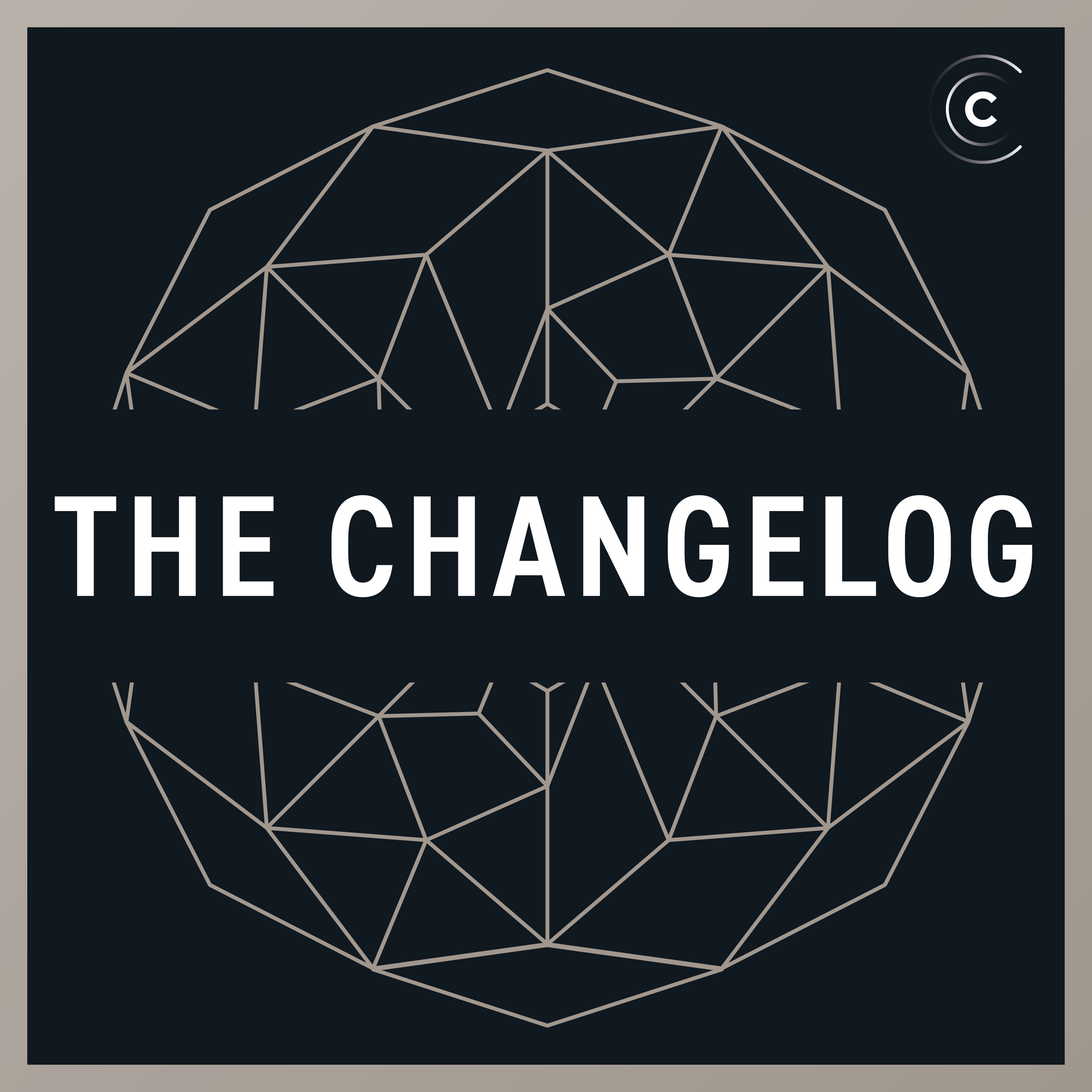

The Changelog: Software Development, Open Source
Changelog Media
Software's best weekly news brief, deep technical interviews & talk show.
Episodes
Mentioned books

7 snips
Jul 31, 2021 • 1h 15min
Modern Unix tools (Interview)
Nick Janetakis, a freelance developer and host of the Running in Production podcast, dives deep into modern Unix tools. He discusses the pros and cons of Bash vs. Zsh and shares fascinating insights on command line tools like 'cat' vs. 'bat.' Nick reveals how using modern alternatives like 'exa' and 'gping' can streamline workflows. He emphasizes the importance of command history and custom aliases for productivity. With a blend of humor and practical advice, the conversation unveils the evolution of Unix and its impact on today's development practices.

6 snips
Jul 21, 2021 • 45min
Why we 💚 Vim (Interview)
Drew Neil, a web developer and author of 'Practical Vim,' joins forces with Suz Hinton, a software developer who made the switch to Vim four years ago, and Gary Bernhardt, known for his lightning talk 'Wat' and years of Vim expertise. They discuss their journeys to Vim, emphasizing its efficiency and unique command structure. The trio shares favorite plugins and tips to enhance productivity. They also delve into the community aspect of Vim, illustrating how collaboration and resources like Vim Adventures enrich the experience for users.

Jul 19, 2021 • 1h 25min
The story behind Inter (Interview)
Rasmus Andersson, a software creator renowned for his work on Playbit and the Inter typeface, shares his fascinating journey in technology. He discusses Playbit, a platform promoting playful learning and software sharing. The conversation dives into the creation of the Inter typeface, emphasizing its need for open-source accessibility and the artistic challenges involved. Rasmus reflects on the emotional connections fostered through open-source projects and the joy of pursuing personal interests in software development.

Jul 9, 2021 • 1h 13min
Massive scale and ultra-resilience (Interview)
Spencer Kimball, co-founder and CEO of Cockroach Labs, shares insights from his journey in open source and tech startups. He discusses the challenges of building CockroachDB to meet massive scale and resilience needs against established competitors like MySQL. Spencer highlights the significance of networking in tech and the evolution of database technology, emphasizing practical solutions for real-world problems. He also reflects on creating value through community-driven projects and the importance of addressing latency for optimal user satisfaction.

11 snips
Jul 2, 2021 • 1h 14min
The foundations of Continuous Delivery (Interview)
In a fascinating conversation, Dave Farley, co-author of Continuous Delivery and inventor of the deployment pipeline, shares his deep insights into modern software practices. He discusses the transformation from traditional methods to continuous delivery, emphasizing rapid deployment and learning from failures. Farley also highlights the discipline of Test-Driven Development and the critical role of deployment pipelines in software release. With anecdotes and expertise, he illustrates how a flexible approach can enhance code quality and team dynamics.

Jun 21, 2021 • 1h 5min
xbar puts anything in your macOS menu bar (Interview)
Mat Ryer, a creator known for his work on the GoTime podcast, shares insights about xbar, his open-source tool for enhancing the macOS menu bar. He discusses the transition from BitBar to xbar, emphasizing its rewrite in Go and future cross-platform capabilities. Ryer reflects on community contributions and the collaborative spirit in software development. Listeners will also enjoy the humorous anecdotes about podcast rivalries and the balance of sponsorship in indie projects, making it a delightful listen for developers and tech enthusiasts alike.

Jun 18, 2021 • 1h 2min
Funds for open source (Interview)
Pia Mancini, Founder and CEO of Open Collective, discusses revolutionary funding strategies for open source projects. She unveils the 'Funds for Open Source' initiative, designed to streamline corporate investment. Pia also highlights a collaboration with Gitcoin and fundoss.org, featuring a $75,000 matching fund. The conversation touches on maintaining transparency while protecting community members, equitable compensation for maintainers, and innovative funding models that enhance sustainability in the open source ecosystem.

Jun 10, 2021 • 1h 8min
Every commit is a gift (Interview)
Brett Cannon, Dev Manager for the Python Extension for VS Code and a key figure in the Python community, discusses the vital role of maintainers during Maintainer Week. He emphasizes viewing contributions as gifts rather than obligations, and the importance of empathy in open source interactions. Brett sheds light on the challenges between user expectations and volunteer contributions, while advocating for respectful communication. His insights drive home the need for a cultural shift in appreciating contributors in the tech community.

Jun 8, 2021 • 1h 17min
Exploring Deno Land 🦕 (Interview)
Ryan Dahl, the creator of Node.js and Deno, shares his journey in software development. He discusses the lessons learned from Node.js, which led him to build Deno as a more secure and modern runtime for JavaScript and TypeScript. Key topics include Deno's innovative design, enhanced security features, and the challenges in transitioning from Node.js. Dahl also touches on the evolving landscape of Deno applications and his vision for Deno Deploy, emphasizing community involvement and sustainable funding.

May 28, 2021 • 1h 6min
Maintainer week! (Interview)
Join Josh Simmons, Ecosystem Strategy Lead at Tidelift and President of the Open Source Initiative, alongside Kara Sowles, Senior Open Source Program Manager at GitHub. They dive into the exciting Maintainer Week, a celebration aimed at honoring open-source maintainers. Discover its origins and the importance of community collaboration. The discussion highlights the challenges maintainers face, the upcoming Global Maintainer Summit, and the crucial balance between innovation and cost in the open-source landscape. Engage in the fun of recognizing and supporting this vital community!


